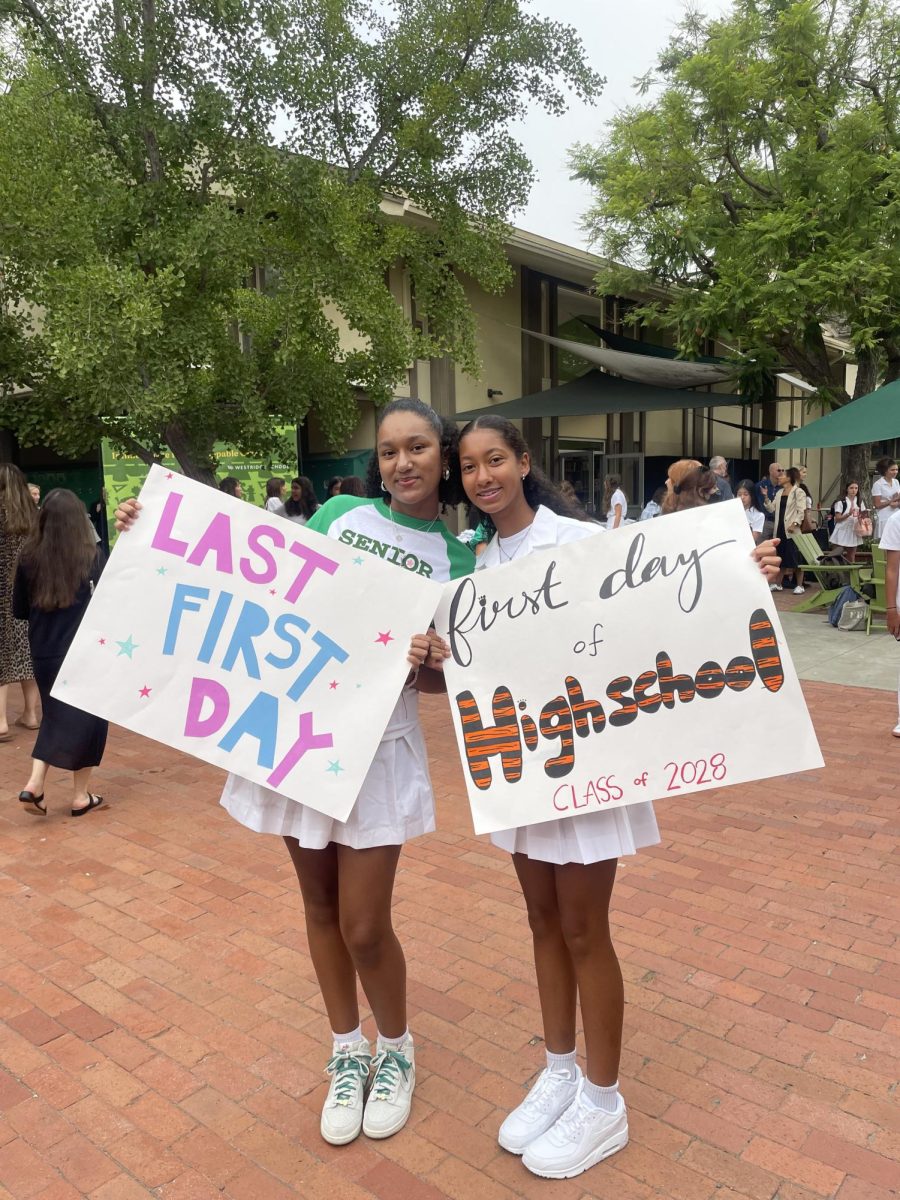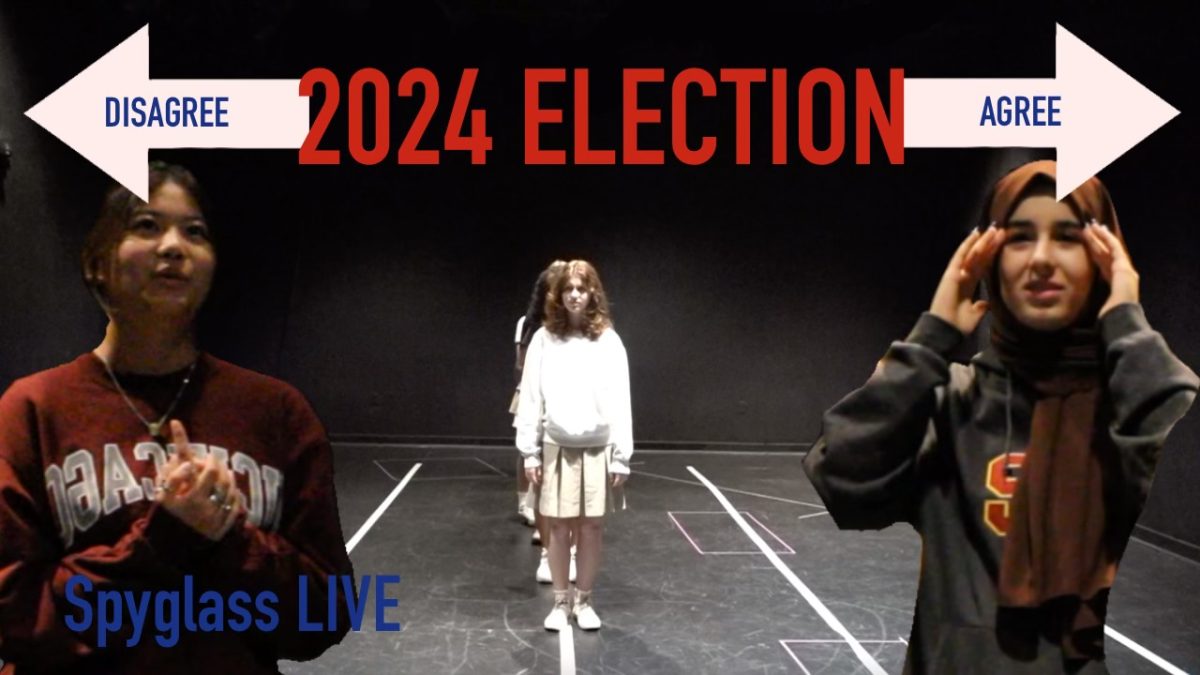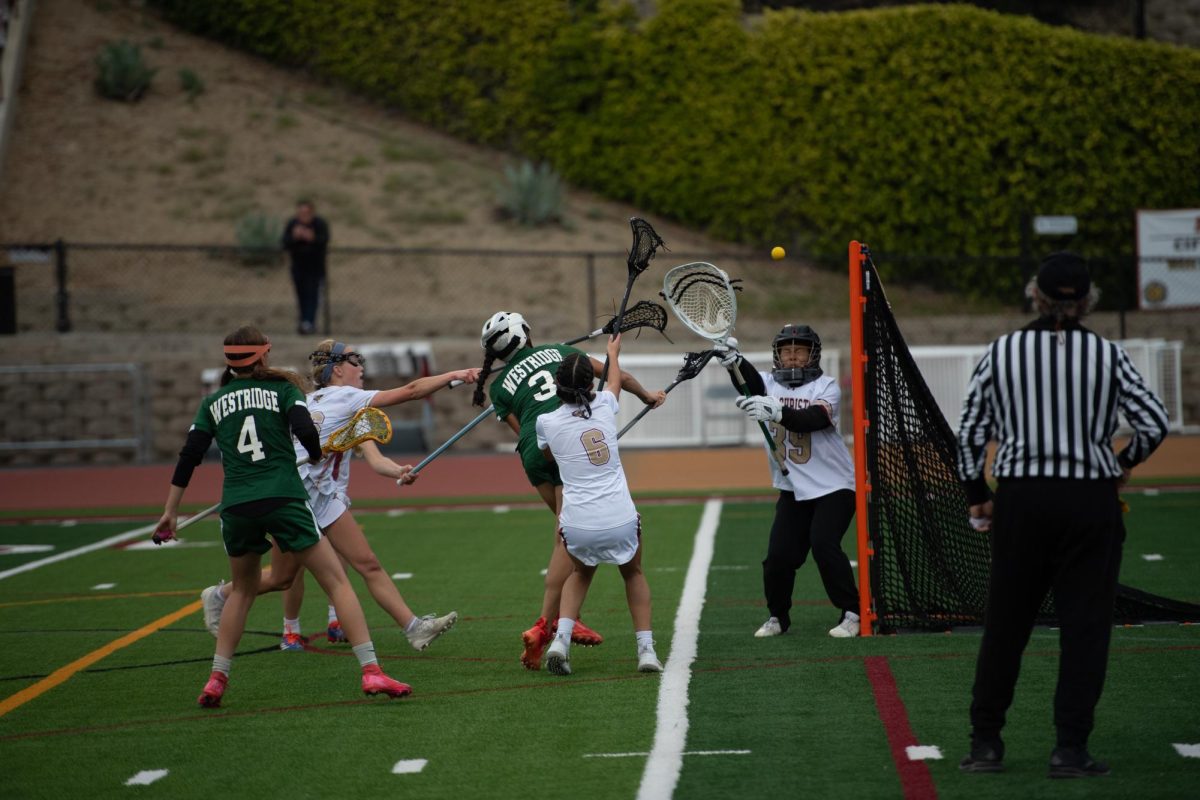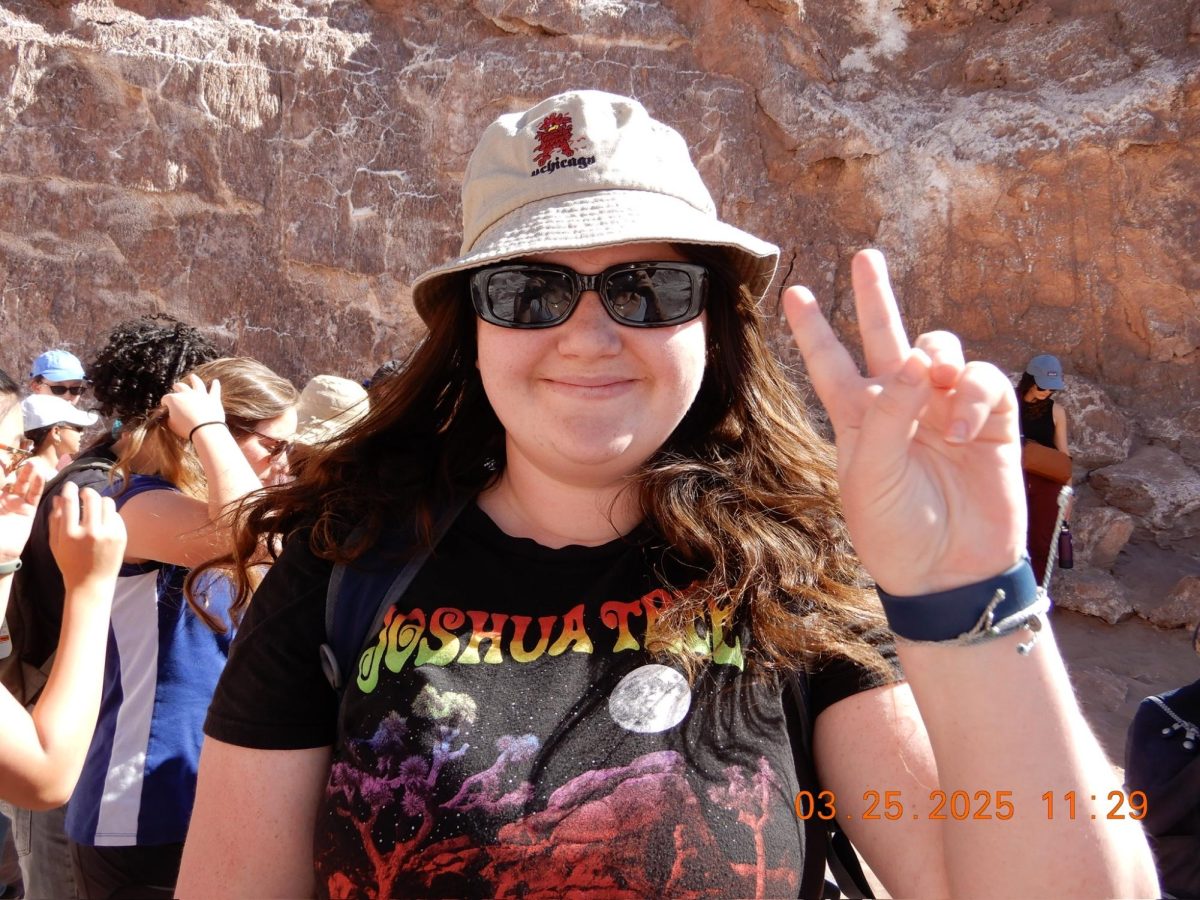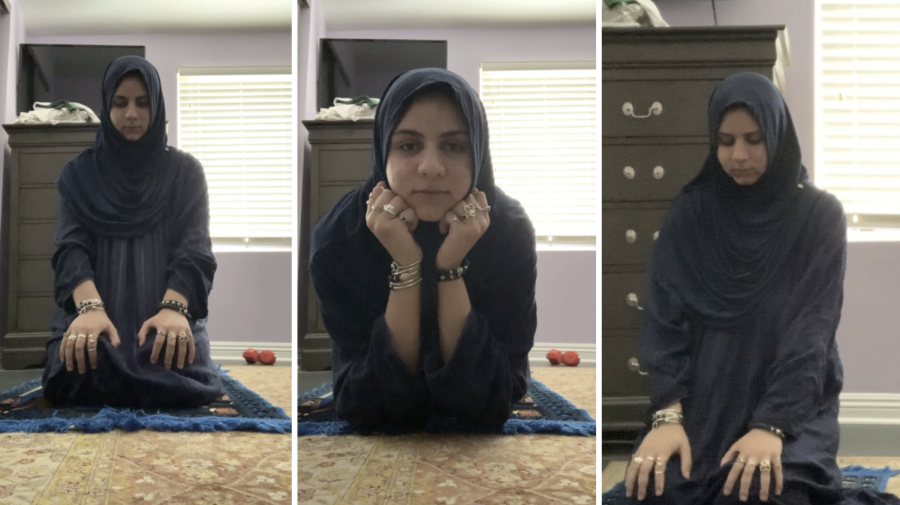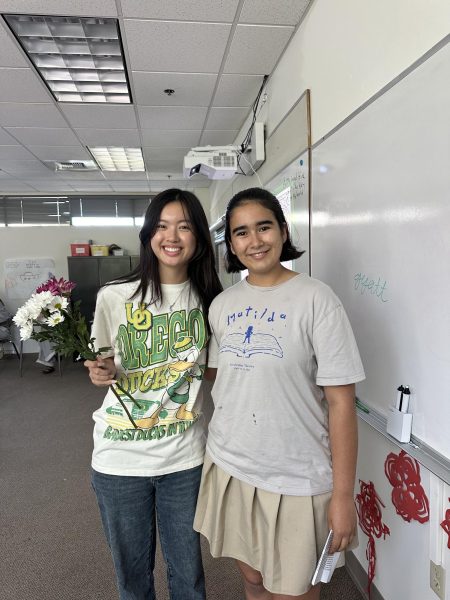My Covert Islamic Identity at Westridge
Two months ago, Ramadan, the holiest month of the year for Muslims, ended. I have so many beloved memories of how my family has celebrated Ramadan—reunions in Cairo, lanterns lit around the house, the quiet hour I spend in Suhur (a meal before dawn to keep us going while fasting) every night, the cream-filled kunafa and sweet crunchy katayef my father makes, and movies my mother would stay up late watching with me when I was younger and eating Suhur for the first time. It’s a religious holiday that deserves to be as cherished as other holidays, and I hope Westridge continues to acknowledge it that way.
Ramadan is also a time of truth and revelation. So, I will show myself wholly—I’m Hannya, a religious Muslim who performs her five daily prayers, recites verses from the Quran throughout the day, and spends much time thinking about God. I am not planning on getting kissed by anyone before we’re married. I am also someone who would go to mosques more often if her parents weren’t afraid of shootings, and who will one day go to Hajj. As an adult, I hope to take more steps to be a better Muslim, because being Muslim is a choice I continue to make and hold close to myself. When I’m not feeling okay, I look to God and ask for His help and His refuge, and apologize for times when I was angry, cynical, and lethargic. Being faithful to my religious teachings does not make me bigoted or forgiving of bigotry, delusional or detached from reality, submissive, insecure, or feudal.
I am not unaware of the stereotypes surrounding Muslims. Whether on the Westridge campus or elsewhere in the world, I encounter them. People look at me and don’t believe right away that I can be a devout Muslim because I don’t fit the stereotypical version of one. They don’t believe a truly devout and genuinely dedicated Muslim can have liberal views, not wear a hijab, be so outspoken in the way that I am about my everyday lens of life, and routinely blast explicit rap music in my headphones. That’s because they find themselves turning to a more degraded and stereotypical view of Muslims. But that’s only part of the problem.
In my four years at Westridge, I’ve seen few conversations that validate religion and religious practice. And I’ve seen even fewer conversations that validate the religious practice of Islam. I feel like I’m the only person in my class who openly and strongly identifies as a person of faith, let alone a Muslim, and has faith as an important cornerstone in their identity and lens on life. In both formal and informal discussions, whenever religion is mentioned, it’s usually to denigrate it and the people who believe in it. When I try expressing my spiritual views on life and identity, I’m met with blank stares and awkward giggles. It’s not just that people can’t relate—it’s that the basic notion of devoted religious practice seems outlandish to them. It’s like my personal, first-hand lived experience with religion is not palatable; only the abstract concept of religious practice in a history textbook is.
I understand that demographically, I am a minority, but I imagine that the other students of faith (few as we may be) have also experienced a kind of silencing. At Westridge, to be a person of active faith and religious practice is to accept a kind of invisibility because the conversations regarding religion never acknowledge that religion is an ideology of complex principles and culture that can be a central component in a person’s identity. Instead, religious identity is seen as potentially offensive to other people.
Because religious practice and religion itself are viewed with derision, Muslims are disproportionately maligned in a casual yet tacit way. In this vacuum of conversations and representation, stereotypes about Islam fill the void and reinforce prejudice against Muslims on Westridge’s campus.
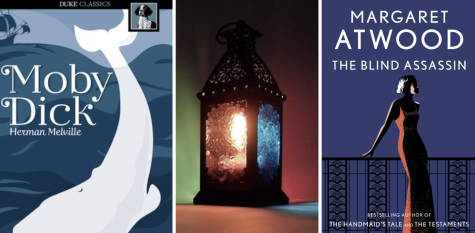
Throughout my four years as a student, I have noticed missed opportunities by Westridge to discuss Muslim and MENA (Middle Eastern or North African) representation. When people discuss The Handmaid’s Tale’s issue with white feminism, the stereotypes about Muslim women in hijabs are never brought up through resources or perspectives. When the ASB discussed how film could propel representations of culture, gender, and sexuality, I was surprised that they didn’t mention how the 2019 Aladdin remake sought to cast ethnically correct characters and better representation of the Abbasid Empire during the Islamic Golden Age. Perhaps it is because there were no members who were of MENA ethnicity there to point out its importance. I was also surprised how the ASB, in contrast to how it handled the Sutherlands Springs church shooting and Pittsburgh synagogue shooting that happened in the same year, did not dedicate a Town Meeting to discussing the Christchurch mosque shootings that claimed the lives of fifty-one Muslims in New Zealand. Perhaps because of how few Muslims there are at Westridge, the issue did not seem as relevant.
But as a member of Westridge’s MENA affinity, what I have found even more troubling is the way in which MENA affinity members have had to self-censor. I can testify that when we planned informational posters to put up around campus, we found ourselves listing issues we couldn’t put on them. We tried to imagine the aftermath of a poster explaining, for example, a brief history, and the current state, of the Palestinian-Israeli conflict. People would probably contact the administration, arguing that the poster holds or would inspire anti-Semitic views. We’d probably be asked to issue a message apologizing for any offense we might have caused.
So, we chose topics that everyone could agree on, and we started with one such topic—the humanitarian crisis in Yemen. And what happened? Someone wrote hateful and dismissive comments on one of the posters. And Westridge did not issue a formal email explicitly condemning the vandalism as an act of hate.
Ultimately, the affinity members and I acknowledged that at Westridge (and outside it too), there’s a politically correct hierarchy of cultures, ethnicities, and perspectives. MENA and Muslims, with their minimal representation, are low on that hierarchy. The bottom line is some perspectives are more appropriate than others—and many times it comes down to sheer numbers. There aren’t very many of us here.
We must acknowledge why whoever vandalized the Yemen poster felt comfortable doing so on a campus as outspoken as Westridge. The reason why they felt comfortable enough is because MENA representation is not heard, seen, or celebrated as other identities are.
Part of that has to do with our own lack of representation. There are few students who think like me and act from a shared value system. This cuts both ways. When you’re a Muslim, there’s really no pleasing anyone. Liberals worry you may be too conservative, and conservatives worry that your values are anti-West. As a result, Muslims as minorities feel pressure to fulfill standards for a non-Muslim audience in order to be seen as a “good Muslim.” And being Muslim is preferably done in moderation, hence the terms “moderate Muslim” and “moderate Islam.”
As a Muslim of MENA heritage, I know that if people around me were willing to confront their biases and examine their privilege, we could dismantle some of the negative stereotypes surrounding Muslims and MENA people. By encouraging and recognizing people to cherish their MENA heritage or Islamic way of life, Westridge and other communities can increase the visibility of MENA students and support Muslim students’ practice of faith.
As for me, I’m headed to college and beyond, carrying my faith in God as close as I do my faith in life and myself, and that faith will be so valuable in treasuring my ethnic, ideological, and personal identity—even when others don’t.




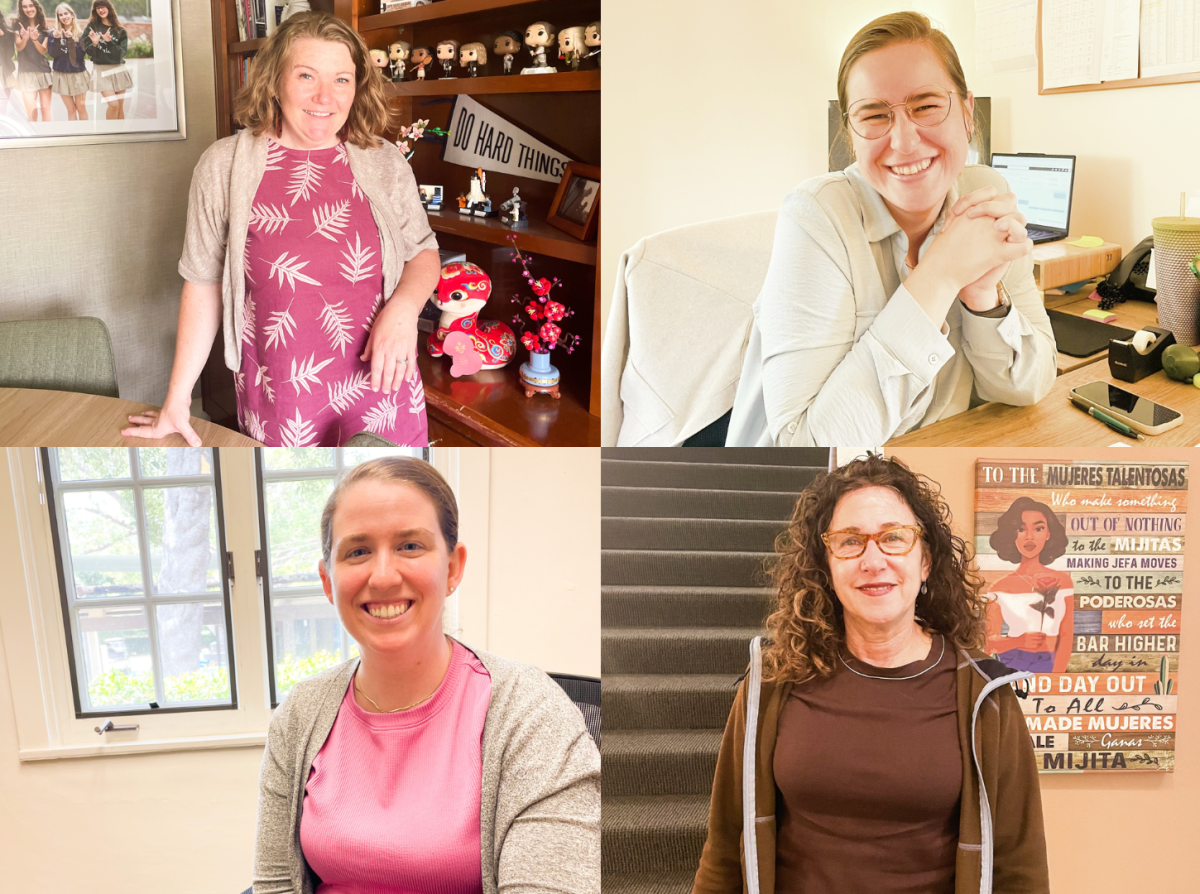
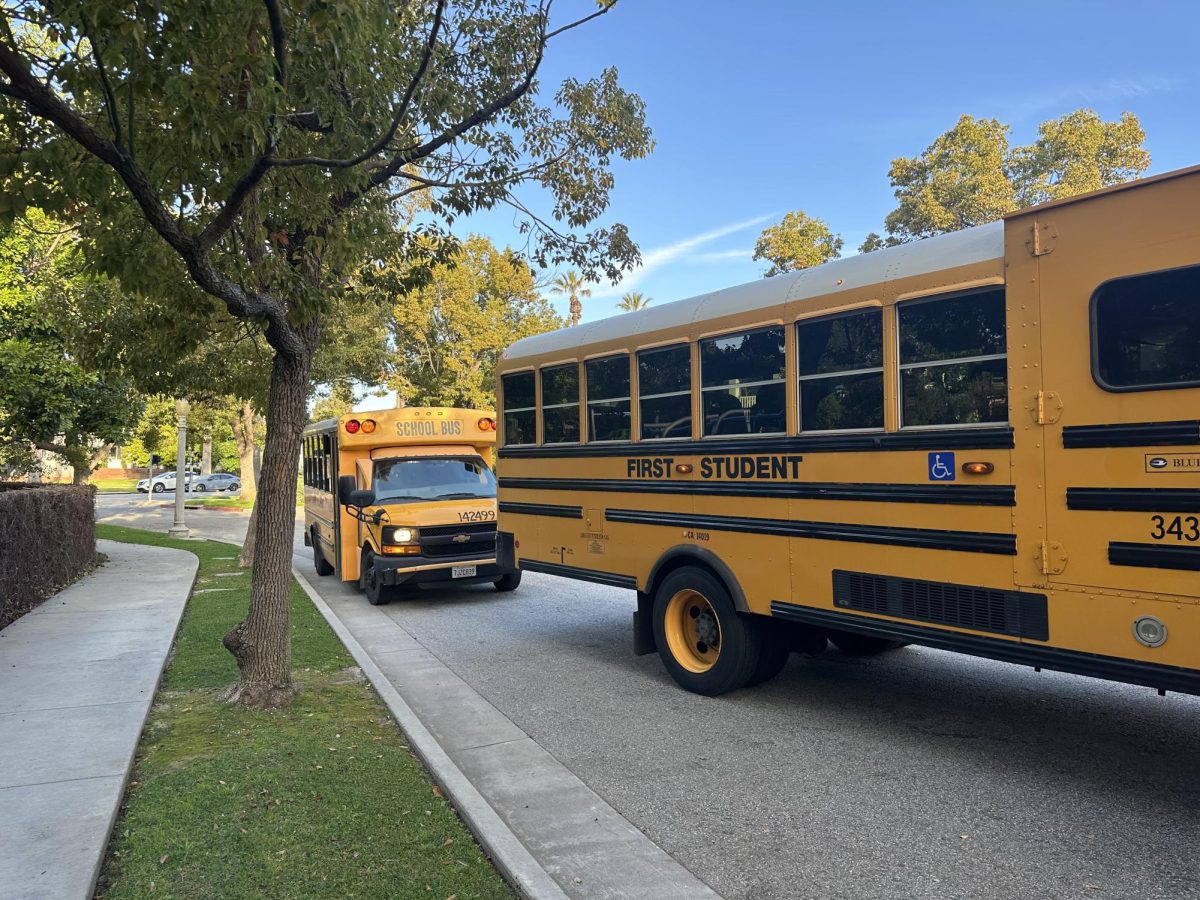


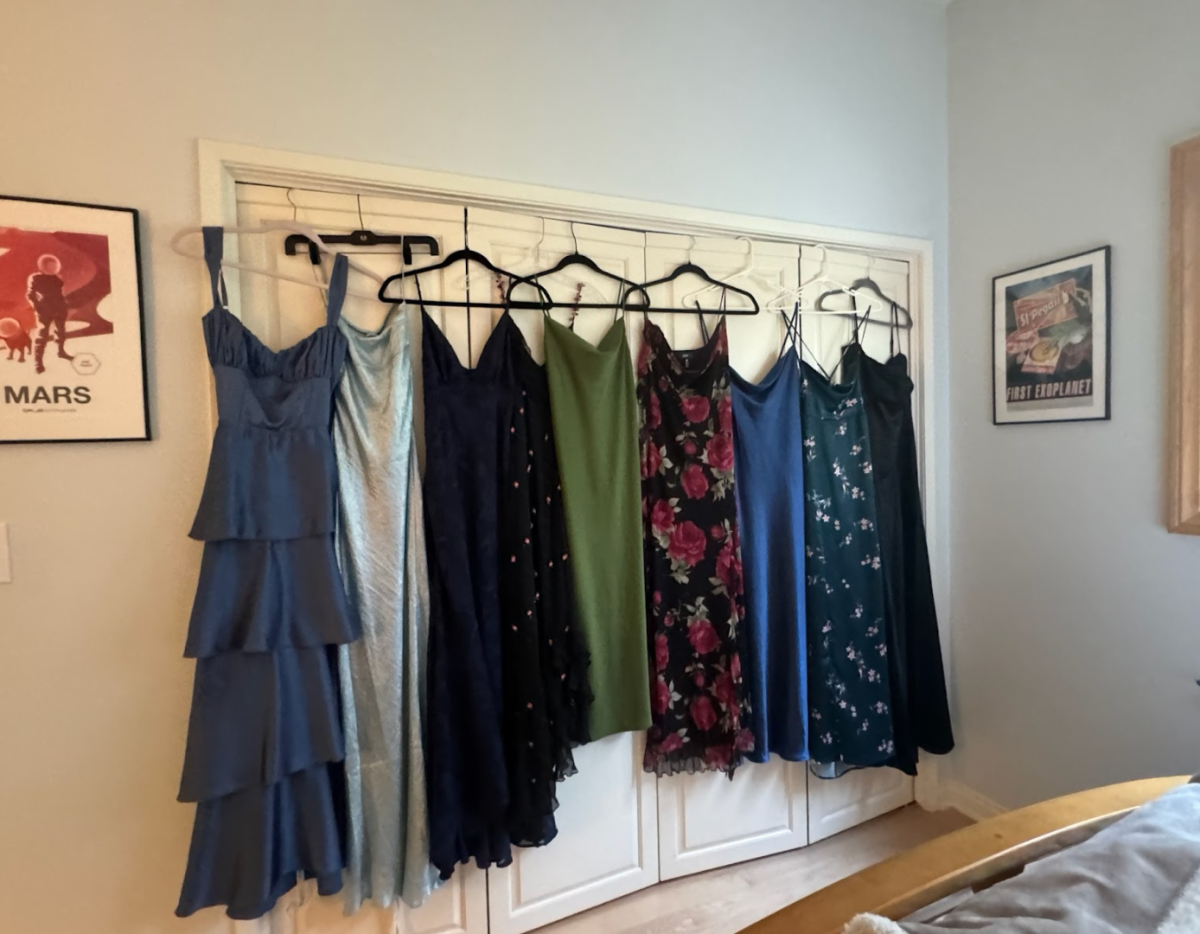








![Dr. Zanita Kelly, Director of Lower and Middle School, pictured above, and the rest of Westridge Administration were instrumental to providing Westridge faculty and staff the support they needed after the Eaton fire. "[Teachers] are part of the community," said Dr. Kelly. "Just like our families and students."](https://westridgespyglass.org/wp-content/uploads/2025/03/dr.-kellyyy-1-e1748143600809.png)








